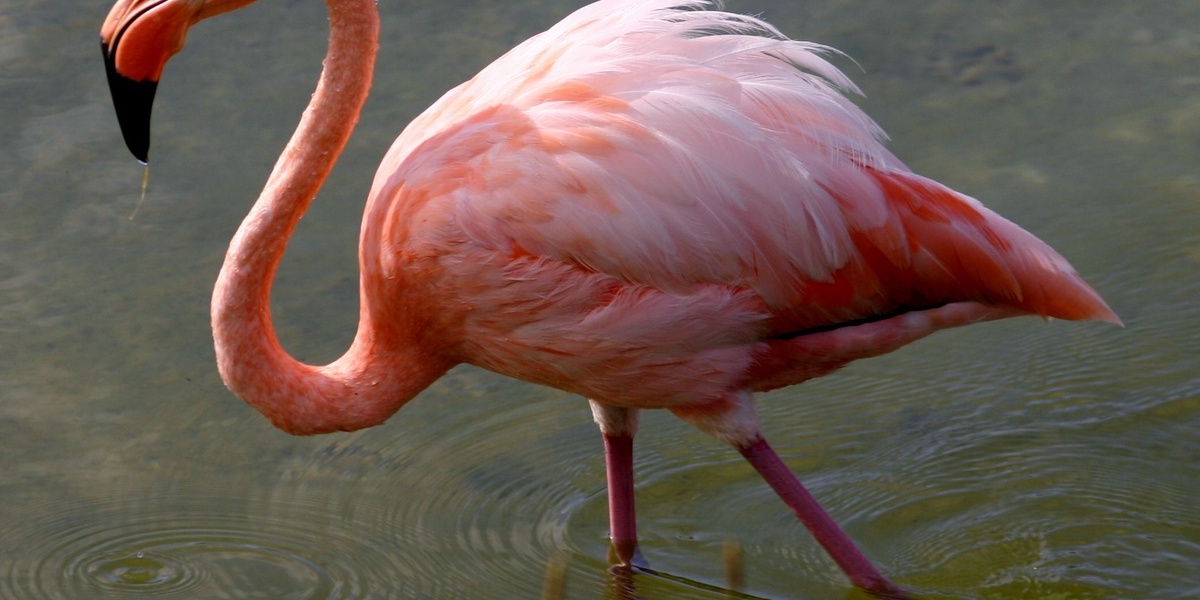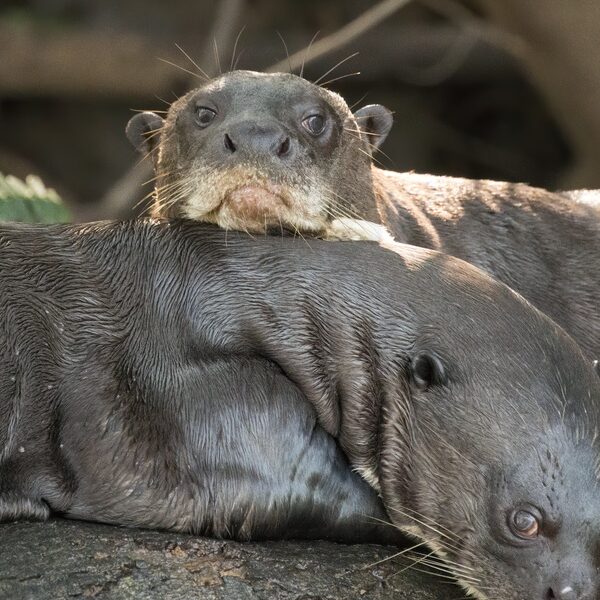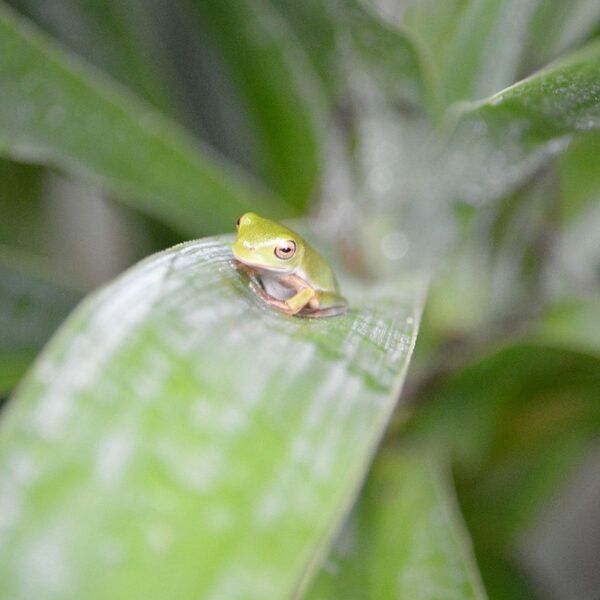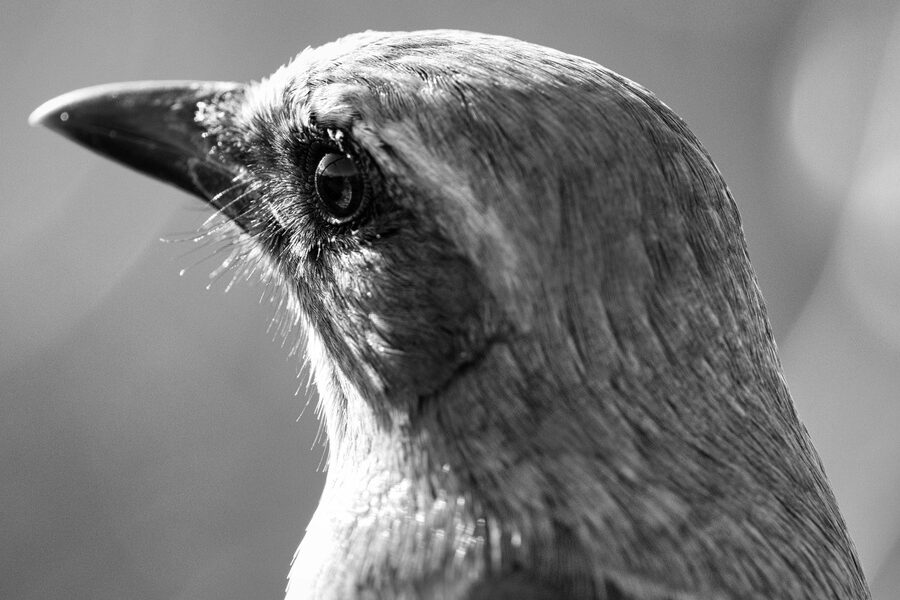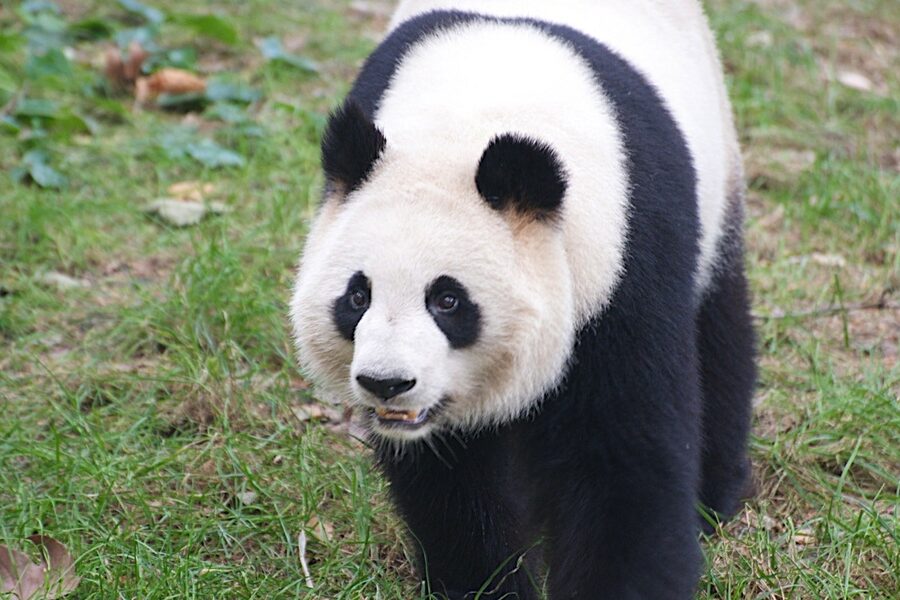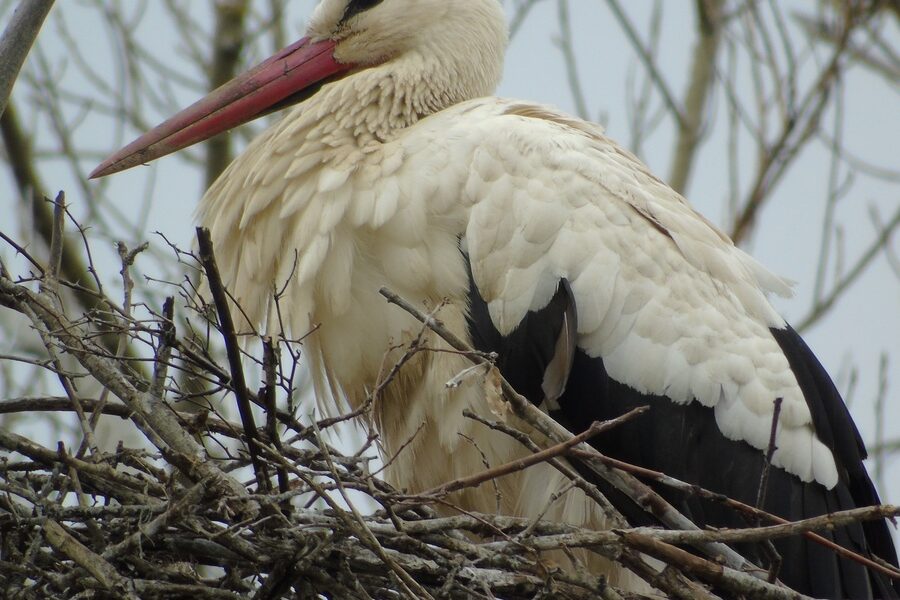North Africa’s mix of Mediterranean coasts, wetlands and desert margins supports a rich turnover of birdlife. From shorelines to oases, seasonal movements and local specialties mean there’s always something worth noting on a walk or a roadside stop.
There are 91 Birds of North Africa, ranging from African Blue Tit to Zitting Cisticola. For each entry the table lists Scientific name,Size (length cm),Status — you’ll find below.
How comprehensive is this list and how were species selected?
The list focuses on regularly recorded residents, breeders and common migrants across the North African region; verified vagrants may also be included. The Status column flags whether a species is resident, migrant or rare, and the catalogue draws on regional checklists and recent field surveys for accuracy.
How should I use the Scientific name,Size (length cm),Status columns in the field?
Use the Scientific name to avoid confusion with local common names, the Size (length cm) to help narrow candidates during quick sightings, and the Status to judge how likely you are to encounter a species in a given season or habitat; combine these with a field guide or app for reliable ID.
Birds of North Africa
| Name | Scientific name | Size (length cm) | Status |
|---|---|---|---|
| Barbary Partridge | Alectoris barbara | 33-36 | Resident |
| Moussier’s Redstart | Phoenicurus moussieri | 12-13 | Resident |
| House Bunting | Emberiza sahari | 13-14 | Resident |
| Atlas Flycatcher | Ficedula speculigera | 12-13.5 | Breeding migrant |
| African Blue Tit | Cyanistes teneriffae | 11-12 | Resident |
| Levaillant’s Woodpecker | Picus vaillantii | 30-33 | Resident |
| Lanner Falcon | Falco biarmicus | 34-50 | Resident |
| Northern Bald Ibis | Geronticus eremita | 70-80 | Resident |
| Cream-colored Courser | Cursorius cursor | 24-27 | Resident |
| Desert Sparrow | Passer simplex | 12-13 | Resident |
| Houbara Bustard | Chlamydotis undulata | 55-65 | Resident |
| Pharaoh Eagle-Owl | Bubo ascalaphus | 46-51 | Resident |
| Audouin’s Gull | Ichthyaetus audouinii | 48-52 | Resident & Winter visitor |
| Egyptian Vulture | Neophron percnopterus | 58-71 | Breeding migrant |
| Bonelli’s Eagle | Aquila fasciata | 55-67 | Resident |
| Barbary Falcon | Falco pelegrinoides | 33-39 | Resident |
| Common Bulbul | Pycnonotus barbatus | 19-21 | Resident |
| Sardinian Warbler | Sylvia melanocephala | 12-13 | Resident |
| Hoopoe Lark | Alaemon alaudipes | 19-23 | Resident |
| Black-crowned Tchagra | Tchagra senegalus | 19-22 | Resident |
| Fulvous Babbler | Argya fulva | 22-25 | Resident |
| Thekla’s Lark | Galerida theklae | 15-17 | Resident |
| Scrub Warbler | Scotocerca inquieta | 10-11.5 | Resident |
| Tristram’s Warbler | Sylvia deserticola | 11.5-12.5 | Resident & Breeding migrant |
| White-crowned Wheatear | Oenanthe leucopyga | 17-18.5 | Resident |
| Black Wheatear | Oenanthe leucura | 16-18 | Resident |
| Maghreb Magpie | Pica mauritanica | 45-50 | Resident |
| Brown-necked Raven | Corvus ruficollis | 52-56 | Resident |
| Trumpeter Finch | Bucanetes githagineus | 12-14 | Resident |
| African Crimson-winged Finch | Rhodopechys alienus | 15-17 | Resident |
| Spotless Starling | Sturnus unicolor | 21-23 | Resident |
| Great Spotted Cuckoo | Clamator glandarius | 35-39 | Breeding migrant |
| Cattle Egret | Bubulcus ibis | 46-56 | Resident |
| Squacco Heron | Ardeola ralloides | 44-47 | Breeding migrant |
| Marbled Duck | Marmaronetta angustirostris | 39-42 | Resident & Winter visitor |
| Ferruginous Duck | Aythya nyroca | 38-42 | Winter visitor & Passage |
| Eleonora’s Falcon | Falco eleonorae | 36-42 | Breeding migrant |
| Sooty Falcon | Falco concolor | 32-37 | Breeding migrant |
| Osprey | Pandion haliaetus | 52-60 | Resident & Passage |
| Slender-billed Gull | Chroicocephalus genei | 37-40 | Resident & Winter visitor |
| Ruddy Shelduck | Tadorna ferruginea | 58-70 | Resident & Winter visitor |
| Greater Hoopoe-Lark | Alaemon alaudipes | 19-23 | Resident |
| Bar-tailed Lark | Ammomanes cinctura | 13-14 | Resident |
| Temminck’s Lark | Eremophila bilopha | 14-15 | Resident |
| Thick-billed Lark | Ramphocoris clotbey | 17-18 | Resident |
| Dupont’s Lark | Chersophilus duponti | 17-18 | Resident |
| White Stork | Ciconia ciconia | 100-115 | Passage & Breeding migrant |
| Black Stork | Ciconia nigra | 95-100 | Passage |
| Eurasian Spoonbill | Platalea leucorodia | 80-93 | Resident & Winter visitor |
| Greater Flamingo | Phoenicopterus roseus | 120-145 | Resident & Winter visitor |
| Black-winged Stilt | Himantopus himantopus | 35-40 | Resident & Breeding migrant |
| Pied Avocet | Recurvirostra avosetta | 42-45 | Resident & Winter visitor |
| Collared Pratincole | Glareola pratincola | 24-28 | Breeding migrant |
| Stone-curlew | Burhinus oedicnemus | 40-44 | Resident & Breeding migrant |
| Little Owl | Athene noctua | 21-23 | Resident |
| Barn Owl | Tyto alba | 33-39 | Resident |
| Long-legged Buzzard | Buteo rufinus | 50-65 | Resident & Winter visitor |
| Booted Eagle | Hieraaetus pennatus | 42-51 | Breeding migrant & Passage |
| Short-toed Snake Eagle | Circaetus gallicus | 62-67 | Breeding migrant & Passage |
| Griffon Vulture | Gyps fulvus | 93-110 | Resident |
| Black Kite | Milvus migrans | 44-66 | Breeding migrant & Passage |
| Marsh Harrier | Circus aeruginosus | 43-54 | Resident & Winter visitor |
| Montagu’s Harrier | Circus pygargus | 43-47 | Breeding migrant & Passage |
| European Bee-eater | Merops apiaster | 27-29 | Breeding migrant |
| Blue-cheeked Bee-eater | Merops persicus | 30-35 | Breeding migrant & Passage |
| European Roller | Coracias garrulus | 30-32 | Breeding migrant & Passage |
| Hoopoe | Upupa epops | 25-29 | Resident & Breeding migrant |
| Great Grey Shrike | Lanius excubitor | 22-26 | Resident & Winter visitor |
| Woodchat Shrike | Lanius senator | 17-19 | Breeding migrant |
| Zitting Cisticola | Cisticola juncidis | 10-11 | Resident |
| Rufous-tailed Scrub Robin | Cercotrichas galactotes | 14-16 | Breeding migrant |
| Black-eared Wheatear | Oenanthe hispanica | 13.5-15.5 | Breeding migrant |
| Desert Wheatear | Oenanthe deserti | 14-15 | Resident & Winter visitor |
| Red-rumped Wheatear | Oenanthe moesta | 15.5-17 | Resident |
| Mourning Wheatear | Oenanthe lugens | 13.5-15.5 | Resident |
| Western Orphean Warbler | Sylvia hortensis | 14-16 | Breeding migrant |
| Subalpine Warbler | Sylvia cantillans | 12-13 | Breeding migrant & Passage |
| Spectacled Warbler | Sylvia conspicillata | 12-13 | Resident |
| Dartford Warbler | Sylvia undata | 12-13 | Resident |
| Cetti’s Warbler | Cettia cetti | 13-14 | Resident |
| Sedge Warbler | Acrocephalus schoenobaenus | 11.5-13 | Passage |
| Great Reed Warbler | Acrocephalus arundinaceus | 16-20 | Breeding migrant & Passage |
| Melodious Warbler | Hippolais polyglotta | 12-13.5 | Breeding migrant |
| Western Olivaceous Warbler | Iduna opaca | 13-14.5 | Breeding migrant |
| European Serin | Serinus serinus | 11-12 | Resident |
| European Greenfinch | Chloris chloris | 14-16 | Resident |
| Common Linnet | Linaria cannabina | 12.5-14 | Resident |
| Goldfinch | Carduelis carduelis | 12-13.5 | Resident |
| Spanish Sparrow | Passer hispaniolensis | 14-16 | Resident |
| Rock Sparrow | Petronia petronia | 15-17 | Resident |
| Cirl Bunting | Emberiza cirlus | 15-16.5 | Resident |
Images and Descriptions

Barbary Partridge
A chunky ground bird endemic to North Africa. It has a blue-grey face, a reddish-brown necklace, and barred flanks. Look for it in scrubby, rocky hillsides where its calls often give it away.
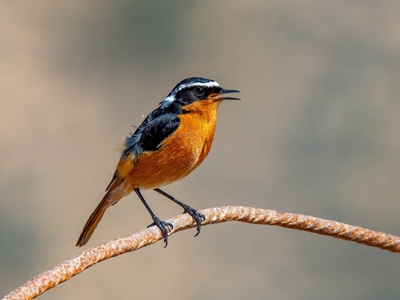
Moussier’s Redstart
A stunning, small bird endemic to the Maghreb. The male is a vibrant mix of black, white, and orange. It perches conspicuously on bushes in open woodland and scrub, flicking its red tail.
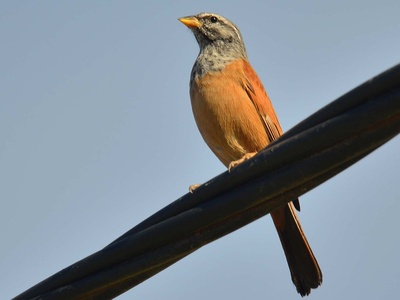
House Bunting
A confiding sparrow-like bird common in towns and villages across the region. It has a greyish head with faint stripes and a warm brown body. Often heard singing its simple, repetitive song from rooftops.
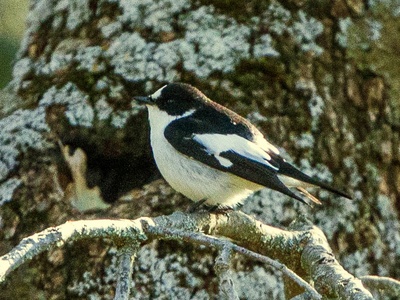
Atlas Flycatcher
A small, pied flycatcher that breeds in the Atlas Mountains. The male is black-and-white with a large white wing patch. It winters in West Africa, returning to North African oak and cedar forests to breed.
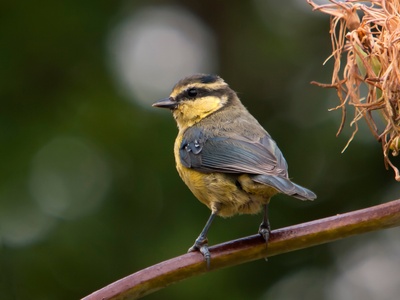
African Blue Tit
A North African and Canary Islands resident, now considered a full species. It is similar to its European cousin but has a darker blue cap and a grey-blue back, found in forests and woodlands.
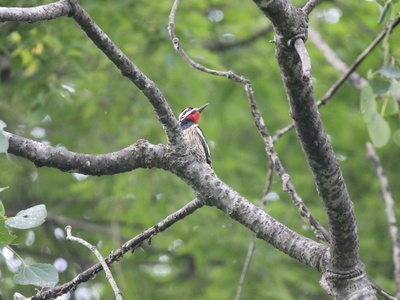
Levaillant’s Woodpecker
A Maghreb endemic, this large green woodpecker is found in the montane forests of the Atlas range. It has a green body, a red crown (male) or grey crown (female), and a distinctive laughing call.
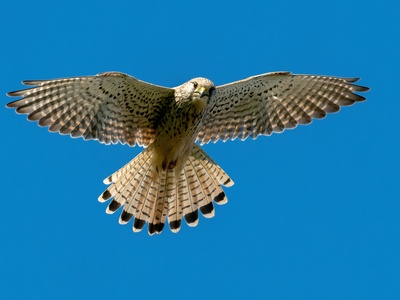
Lanner Falcon
A powerful and agile falcon of open, arid country, cliffs, and savannas. It is paler than a Peregrine with a reddish cap. Often seen hunting birds in fast, low-level flight.
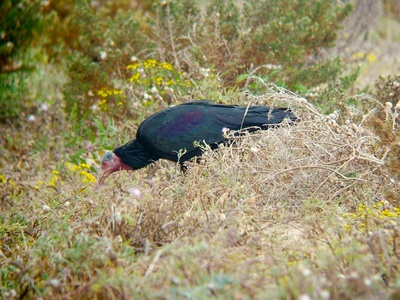
Northern Bald Ibis
A critically endangered and iconic bird, now found wild mainly in coastal Morocco. It is a glossy black ibis with a featherless red head and a long, curved bill, nesting colonially on cliff ledges.
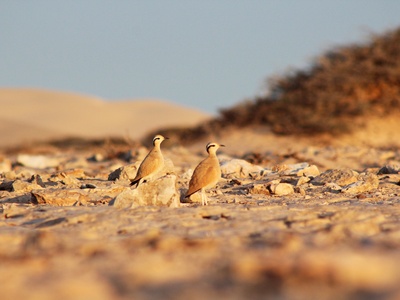
Cream-colored Courser
An elegant, long-legged bird of desert and semi-desert plains. Its sandy plumage provides perfect camouflage. It runs swiftly across the ground to catch insects, often stopping abruptly to look around.

Desert Sparrow
A pale, sandy-coloured sparrow perfectly adapted to life in the Sahara. Males have a distinctive black bib and mask. It is often found near desert oases and sparse vegetation, feeding on seeds.
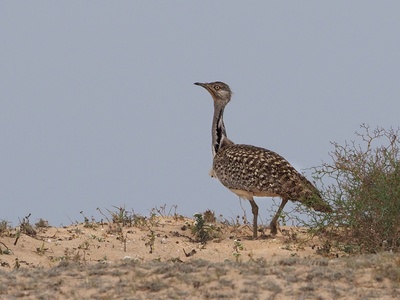
Houbara Bustard
A large, cryptic bird of arid plains and semi-deserts. Known for the male’s spectacular courtship display, where he transforms into a white ball of feathers. It is a vulnerable species due to hunting pressure.
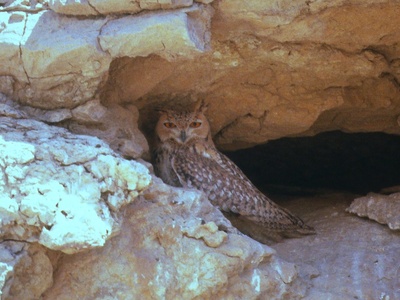
Pharaoh Eagle-Owl
A large, powerful owl of rocky deserts and canyons, with striking orange eyes and prominent ear-tufts. Its deep hooting calls echo through the desert night as it hunts for small mammals and reptiles.
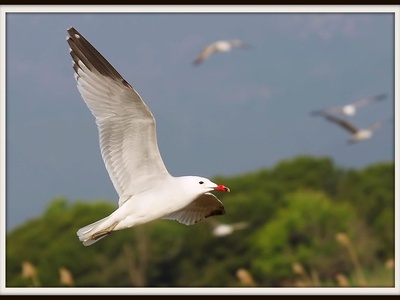
Audouin’s Gull
An elegant, medium-sized gull with a pale grey mantle, dark eyes, and a stubby, coral-red bill with a black tip. A Mediterranean specialist, it is often found on sandy coasts and islands.
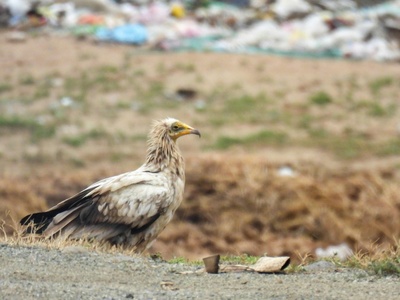
Egyptian Vulture
The smallest vulture in the region, with striking white plumage, black flight feathers, and a yellow face. It’s endangered and famous for its intelligence, including using rocks to break open ostrich eggs.
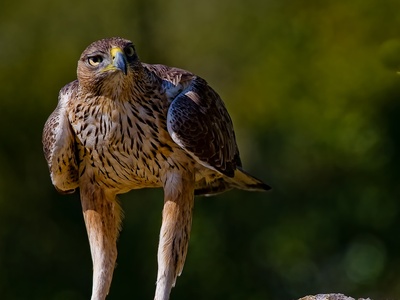
Bonelli’s Eagle
A powerful eagle of mountains and rocky, wooded country. Adults are dark above and white below, with long, relatively narrow wings. It’s a formidable hunter, preying on birds and rabbits.
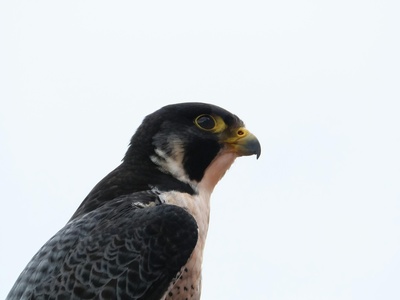
Barbary Falcon
A medium-sized falcon of cliffs and arid mountains, often considered a desert subspecies of the Peregrine. It is paler than its cousin, with a rusty wash on its underparts and nape.
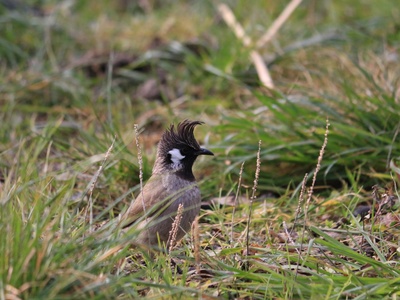
Common Bulbul
A widespread and noisy resident of gardens, oases, and woodlands. It is a plain brown bird with a slightly crested dark head and a yellow vent. Its cheerful, liquid song is a familiar sound.
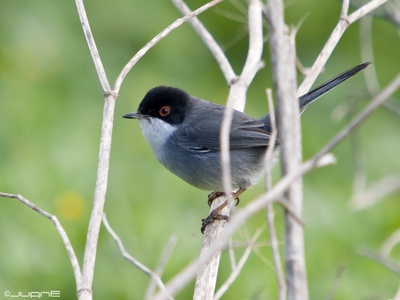
Sardinian Warbler
A common, feisty little warbler of scrubland and maquis. The male has a jet-black cap, white throat, and a conspicuous red eye-ring. It is often seen flitting through bushes with its tail cocked.
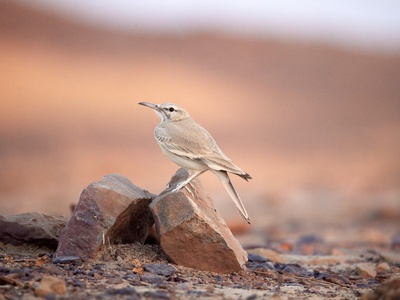
Hoopoe Lark
A large, distinctive lark of sandy and stony deserts. It has a long, downcurved bill and a striking black-and-white wing pattern visible in its buoyant, fluttering flight, which resembles a Hoopoe.
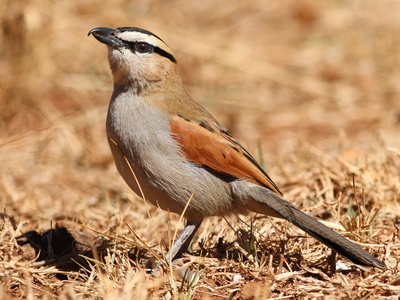
Black-crowned Tchagra
A type of bushshrike found in scrub and open woodland. It has a bold black crown and eye-stripe on a grey head, a rufous back, and a long tail. It often sings its melodious, whistling song from a hidden perch.
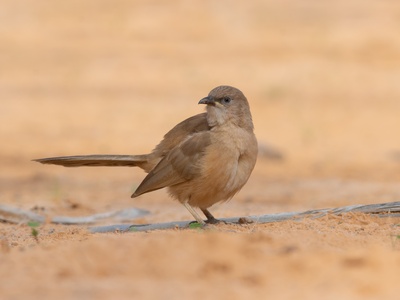
Fulvous Babbler
A sociable desert-edge bird, living in noisy, active family groups. It’s a plain, sandy-brown bird with a long tail, often seen foraging on the ground in acacia scrub and arid wadis.

Thekla’s Lark
Similar to the Crested Lark but typically found in rockier, shrubbier habitats. It has a slightly shorter, more curved bill and a less spiky crest. Its song is also more complex and melodious.

Scrub Warbler
A tiny, hyperactive bird of arid and semi-desert scrub. It constantly flicks its long, dark, white-tipped tail while moving through low vegetation. It has a streaked appearance and a prominent white eyebrow.

Tristram’s Warbler
A beautiful warbler of the Maghreb, breeding on scrubby mountain slopes. The male has a grey head, warm reddish-brown underparts, and a distinct white moustachial stripe.
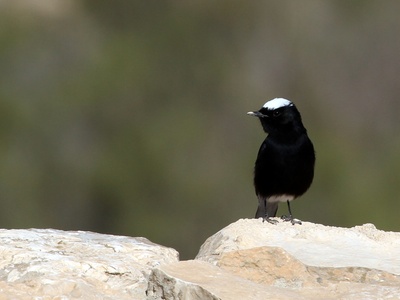
White-crowned Wheatear
A large, striking wheatear of rocky deserts and canyons. Adults are entirely black except for a white rump and a brilliant white crown. Often seen perching on prominent rocks or buildings in desert towns.
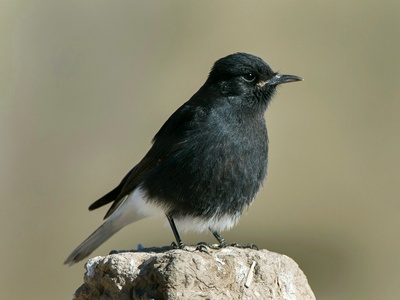
Black Wheatear
A large, robust, all-black wheatear (save for its white rump and tail sides) found on rocky slopes, cliffs, and gorges. It has a habit of fanning its tail to flash the white patches.
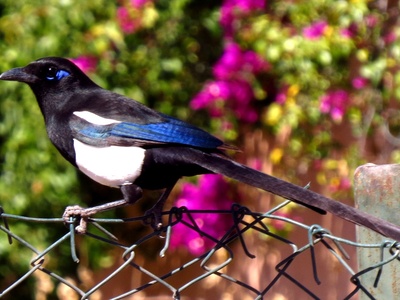
Maghreb Magpie
A recently split species endemic to the Maghreb. It is a classic black-and-white magpie but has a distinctive bare blue patch of skin behind the eye, differentiating it from its European relative.
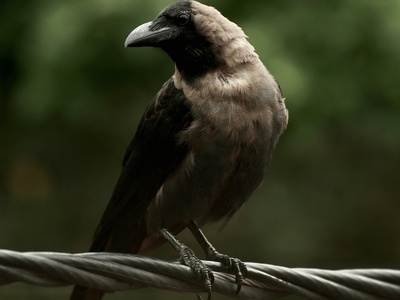
Brown-necked Raven
A large, all-black corvid of desert and arid regions. In good light, it reveals a brownish gloss on its neck and breast. It is highly intelligent and adaptable, often seen soaring on thermals.
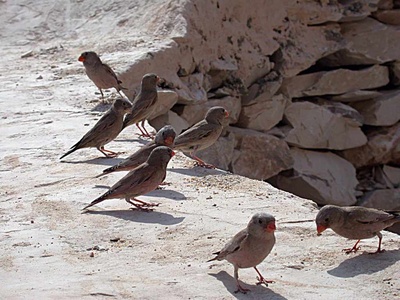
Trumpeter Finch
A small, stocky finch of rocky deserts and arid plains. Males are a beautiful rosy-pink in breeding plumage with a stubby, coral-red bill. Often found in flocks near water sources.
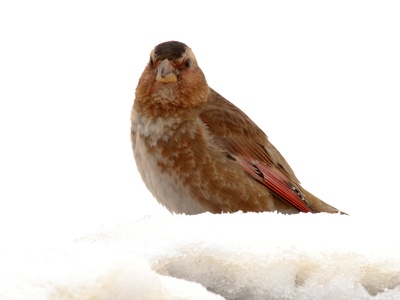
African Crimson-winged Finch
A rare and localized finch of the high Atlas Mountains. It is a large, stocky bird with a huge, pale bill and a stunning flash of pink in its wings, visible in flight.
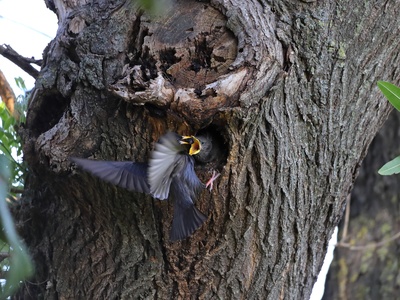
Spotless Starling
A glossy, all-black starling that lacks the spotting of its European cousin in breeding season. It is a noisy and gregarious bird, often forming large flocks in agricultural areas and towns.
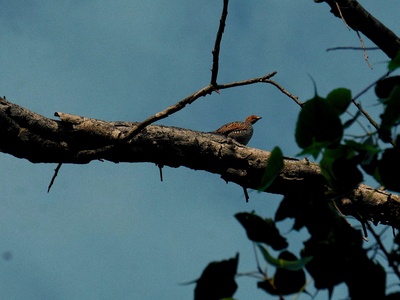
Great Spotted Cuckoo
A large, noisy cuckoo that parasitizes crows and magpies. It is grey above with white spots, has a shaggy crest, and a long tail. Often seen being chased by its host species.

Cattle Egret
A small, white heron famous for its association with livestock, which it follows to catch disturbed insects. In breeding season, it develops buff plumes on its head, chest, and back. Very common in farmland.
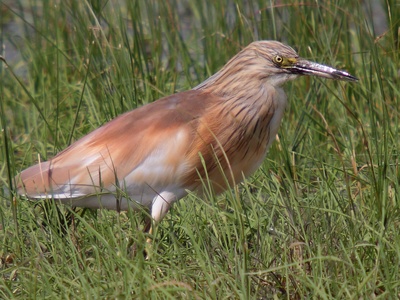
Squacco Heron
A small, stocky heron of freshwater marshes. It appears buff-coloured when standing, but in flight, it transforms into a flash of white from its wings, back, and tail.
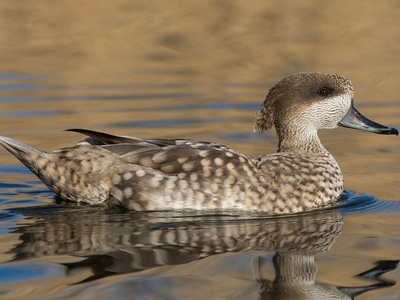
Marbled Duck
A globally threatened duck favouring shallow, well-vegetated wetlands. It is a small, pale, and subtly mottled duck with a dark eye-patch and a shaggy-looking head.
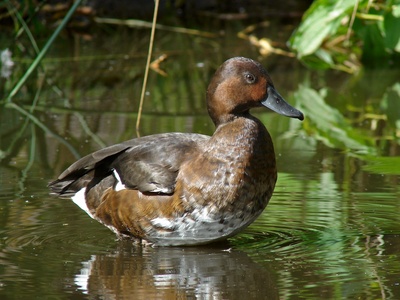
Ferruginous Duck
A medium-sized diving duck with a rich chestnut body, white undertail, and a striking white eye in the male. It prefers freshwater lakes and marshes with abundant vegetation.
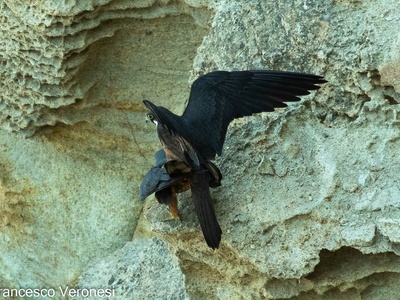
Eleonora’s Falcon
An elegant, slender falcon that breeds colonially on coastal cliffs and islands. It has a unique late breeding season to prey on autumn migrant birds. Exists in both dark and pale morphs.
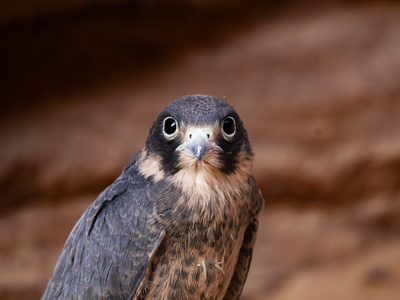
Sooty Falcon
A slender, medium-sized falcon that breeds on remote desert cliffs and islands. It is a uniform grey colour, making it look like a large swift in flight as it expertly hunts birds and insects.
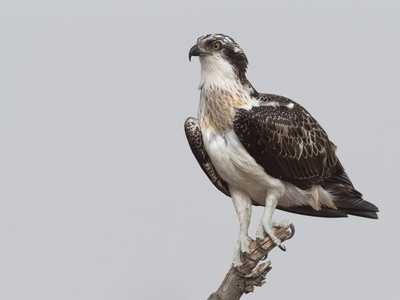
Osprey
A large, fish-eating raptor found along coasts and large inland waters. It has a white head with a dark mask, and is often seen hovering before plunging feet-first to catch a fish.
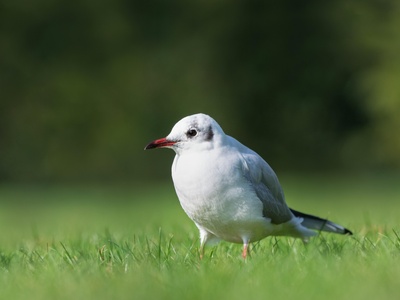
Slender-billed Gull
A pale, elegant gull with a long, slender, dark red bill. In breeding plumage, it often shows a pinkish flush on its underparts. Found in coastal lagoons and saltpans.
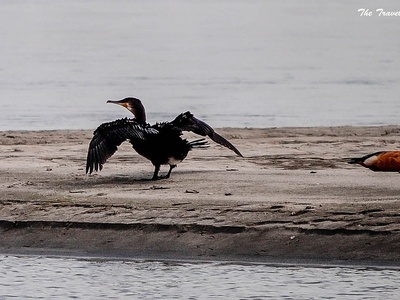
Ruddy Shelduck
A large, distinctive goose-like duck with bright orange-brown plumage and a paler, creamy head. It is often found in pairs or small groups on inland wetlands and lakes.
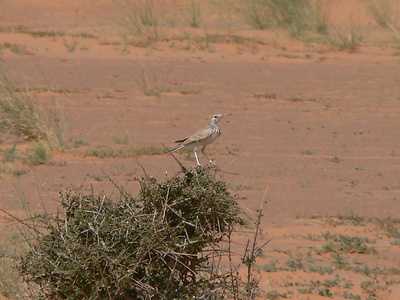
Greater Hoopoe-Lark
A large, striking desert lark with a long, downcurved bill and a distinctive black-and-white wing pattern visible in its buoyant, fluttering flight, which resembles a Hoopoe.
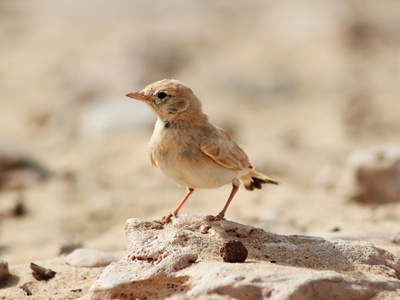
Bar-tailed Lark
A small, pale, and rather featureless desert lark. Its key feature is the black terminal band on its tail, which is most obvious in flight. It inhabits flat, sandy or stony deserts.
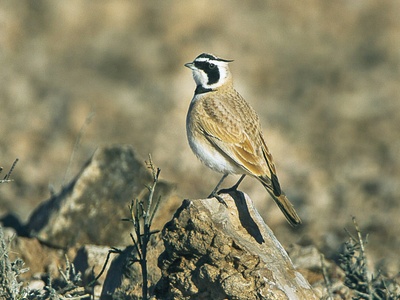
Temminck’s Lark
A distinctive lark of stony deserts with a pinkish-brown body, a black-and-white face pattern, and small black “horns” on the male. It has a high-pitched, tinkling song.
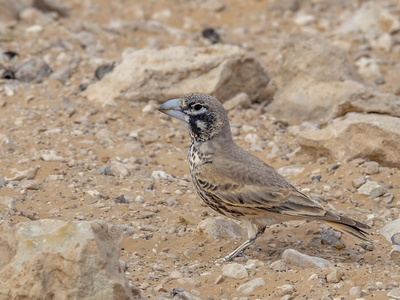
Thick-billed Lark
A large, stocky lark of stony deserts with a massive, finch-like bill. It has a bold black-and-white face pattern and a striking white patch on its wing, visible in flight.
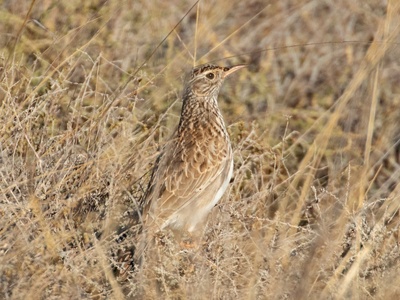
Dupont’s Lark
A highly secretive and sought-after lark of arid steppes with low scrub. It is slender and long-billed, with a streaked pattern, and is best located by its distinctive, mournful, whistling song.
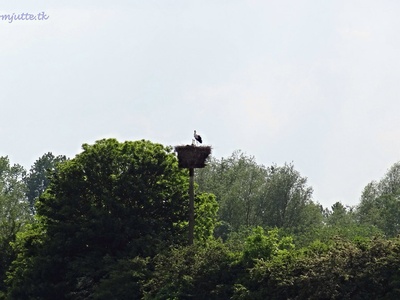
White Stork
An iconic, large white bird with black flight feathers, a red bill, and long red legs. Famous for nesting on buildings and migrating in huge flocks over the Strait of Gibraltar.
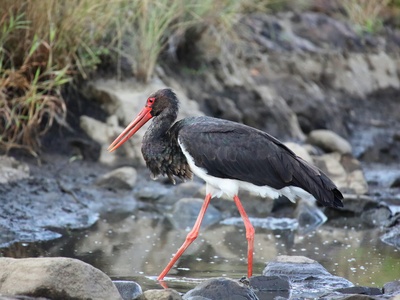
Black Stork
A shier relative of the White Stork, with glossy black plumage and a white belly. It breeds in remote forests and wetlands, and is seen on passage as it migrates to and from Africa.
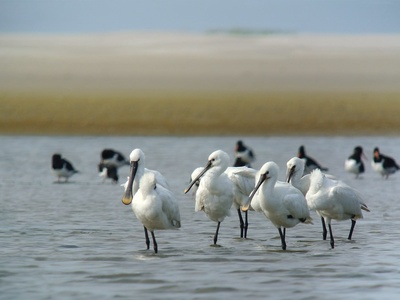
Eurasian Spoonbill
An unmistakable large white waterbird with a long, black, spatulate bill. It feeds by sweeping its partially open bill from side to side in shallow water to catch small fish and invertebrates.
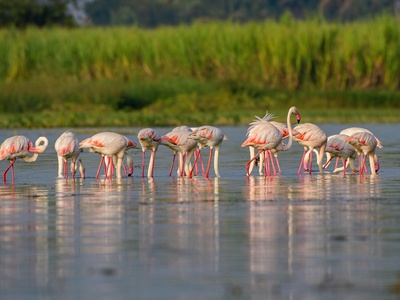
Greater Flamingo
A very large, long-legged and long-necked bird found in coastal and inland wetlands. Its iconic pink plumage comes from pigments in the algae and crustaceans it eats.
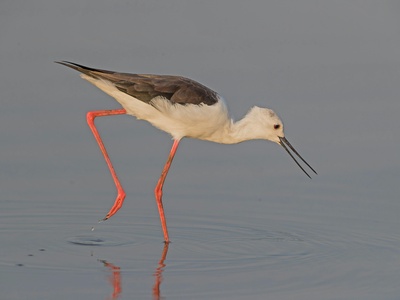
Black-winged Stilt
An elegant and graceful black-and-white wader with disproportionately long, bubblegum-pink legs. It is found in shallow freshwater and brackish wetlands, where it picks insects from the water surface.
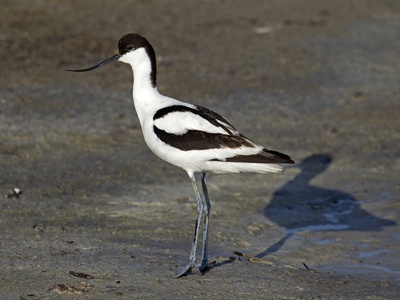
Pied Avocet
A striking black-and-white wader with a unique, long, slender, upcurved black bill. It feeds using a distinctive side-to-side sweeping motion in shallow, brackish water.
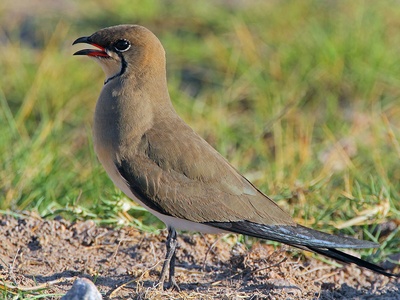
Collared Pratincole
A unique, tern-like wader of open plains, mudflats, and farmland. It has long, pointed wings, a short bill, and a forked tail. It is agile in flight, catching insects on the wing.
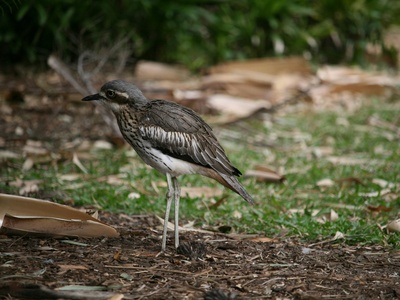
Stone-curlew
A strange, nocturnal wader of dry, open, stony ground. It has long yellow legs, large yellow eyes, and cryptic, sandy-brown plumage. Its loud, wailing calls are a feature of the night.
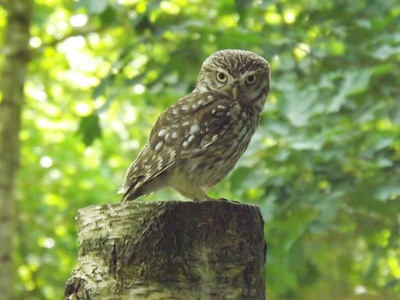
Little Owl
A small, compact owl with bright yellow eyes and a frowning expression. It is active during the day and night, often seen perching on posts, rocks, or buildings in open country.
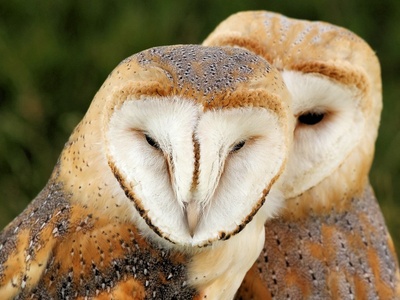
Barn Owl
A ghostly, pale, medium-sized owl with a distinctive heart-shaped face and dark eyes. A nocturnal hunter of open farmland and grassland, it is known for its silent flight and eerie, screeching calls.
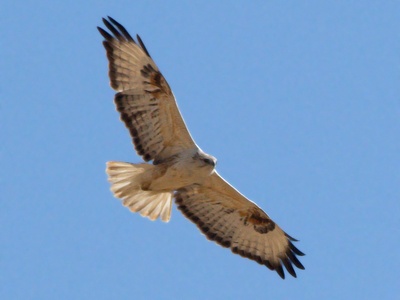
Long-legged Buzzard
A large, pale buzzard of arid, open country. It is highly variable in plumage but often looks sandy or rufous, with a pale head and tail. It soars on broad wings over steppes and mountains.

Booted Eagle
A small, agile eagle, about the size of a buzzard. It occurs in both pale and dark morphs. The pale morph is distinctive with a white body contrasting with black flight feathers.
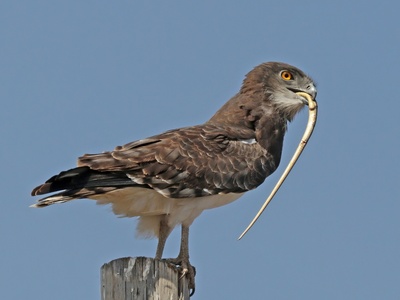
Short-toed Snake Eagle
A large, pale eagle specializing in hunting reptiles, especially snakes. It has a large, owl-like head and bright yellow eyes. Often seen hovering over open, scrubby hillsides.
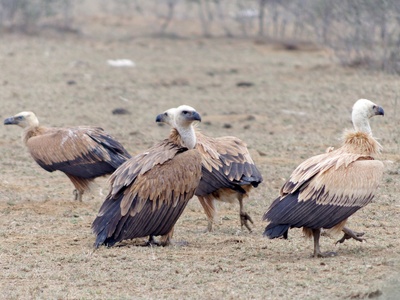
Griffon Vulture
A huge, sociable vulture with sandy-brown body plumage, a pale head covered in down, and a ruff of feathers at the base of its neck. Often seen soaring in groups on thermals over mountains.
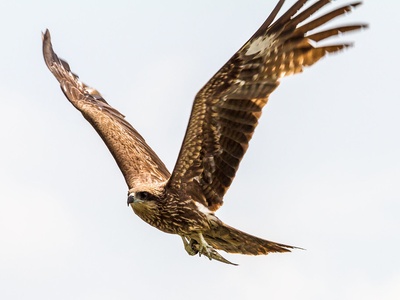
Black Kite
A medium-sized, dark raptor with a distinctive, shallowly forked tail (unlike the deeply forked Red Kite). A highly adaptable scavenger and predator, often seen in large, circling flocks.
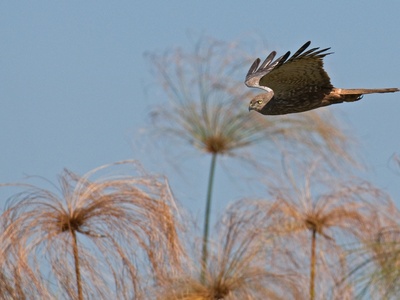
Marsh Harrier
A large harrier associated with reedbeds and marshes. Males are tri-colored (brown, grey, black), while females are chocolate-brown with a creamy head. They fly low over reeds with wings held in a shallow ‘V’.
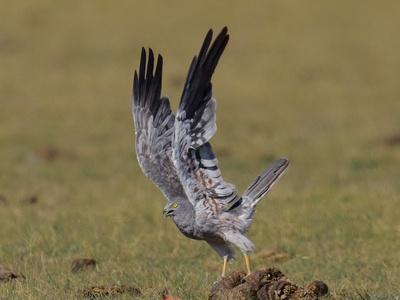
Montagu’s Harrier
A slender, graceful harrier of open farmland and steppe. The male is pale grey with black wingtips. It is known for its elegant, buoyant flight as it quarters low over the ground hunting.
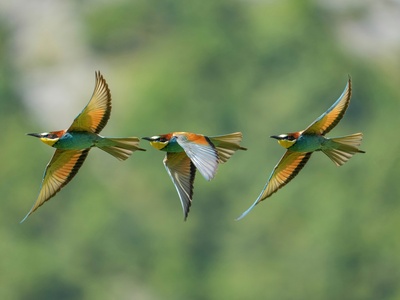
European Bee-eater
A spectacularly colourful bird with blue, yellow, and chestnut plumage. It nests colonially in sandy banks and is often seen perched on wires, sallying out to catch bees and other insects in flight.
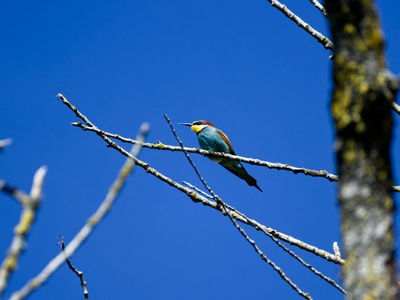
Blue-cheeked Bee-eater
A slender, predominantly green bee-eater with a blue cheek, yellow throat, and long central tail streamers. It is typically found breeding near freshwater bodies in arid regions.
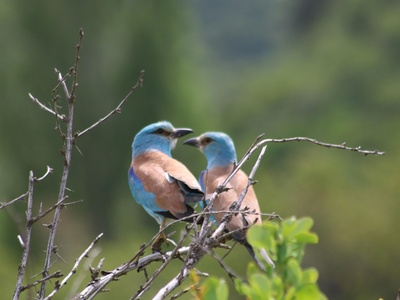
European Roller
A stunning, crow-sized bird with a brilliant turquoise-blue body and brownish back. Its name comes from its acrobatic rolling flight display. It nests in holes in trees, cliffs, or buildings.
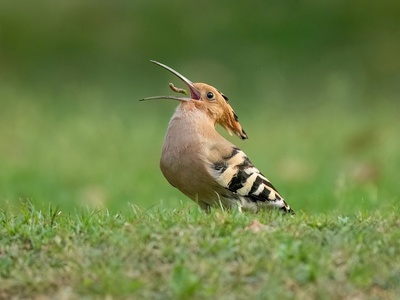
Hoopoe
An unmistakable bird with sandy-pink plumage, bold black-and-white wings, and a large erectile crest. It has a distinctive “oop-oop-oop” call and feeds by probing the ground with its long, curved bill.
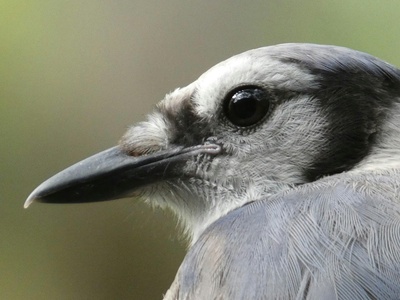
Great Grey Shrike
A bold, predatory passerine known as a “butcherbird” for its habit of impaling prey on thorns. It has a grey back, white underparts, a black mask, and a strongly hooked bill.
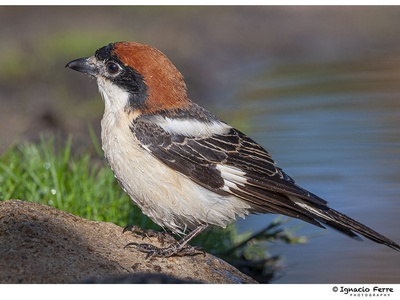
Woodchat Shrike
A striking shrike with a chestnut crown and nape, black back, and white underparts. It breeds in open country with scattered trees, often perching conspicuously on top of a bush or wire.
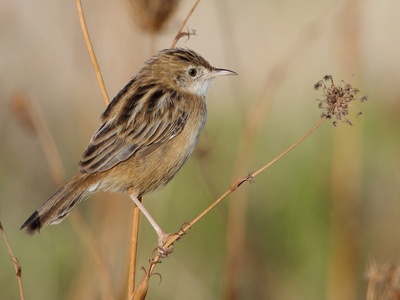
Zitting Cisticola
A tiny, streaky brown warbler found in grassland, farmland, and wetlands. It is best known for its repetitive, metallic “zit” call, delivered during a characteristic undulating song flight.
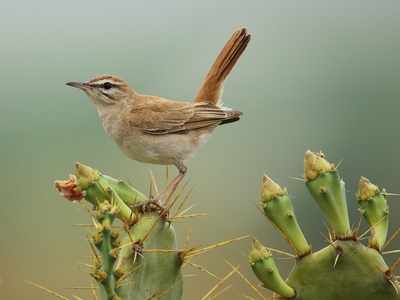
Rufous-tailed Scrub Robin
A long-tailed, thrush-like bird of open, dry country with bushes. It has a plain sandy-brown back, a bold white eyebrow, and a long, rufous tail with black-and-white tips which it often cocks and fans.
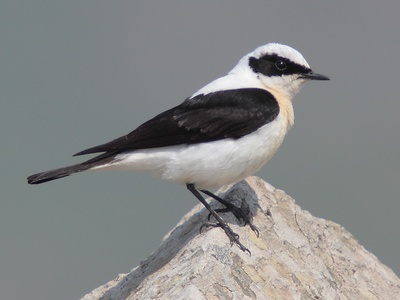
Black-eared Wheatear
A smart, pale wheatear that breeds in dry, open country. Males have a black mask (or throat) and black wings contrasting with a white or buff body. Females are much plainer.
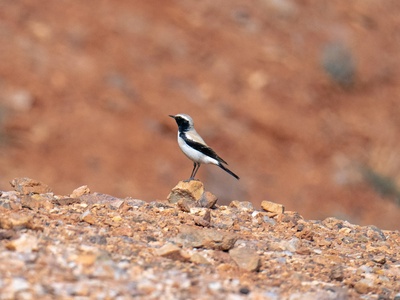
Desert Wheatear
A pale, sandy wheatear of open deserts and steppes. It is distinguished by its almost entirely black tail. Males have a black throat and mask in the breeding season.
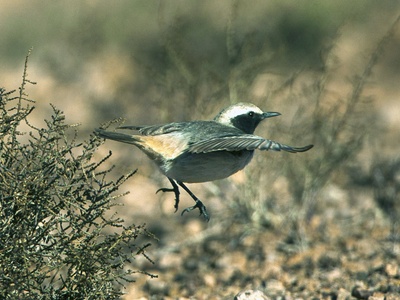
Red-rumped Wheatear
A stocky wheatear of arid steppes and semi-deserts. It has a distinctive grey head, black throat, and a rusty-orange rump. It often nests in rodent burrows.

Mourning Wheatear
A striking black-and-white wheatear of rocky deserts and wadis. The amount of black on the head and breast is variable, but the pattern is always bold and contrasting.
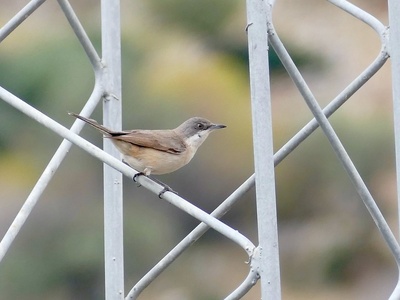
Western Orphean Warbler
One of the largest Sylvia warblers, with a plain grey-brown back, dark cap, and a contrasting white eye. It has a rich, fluting song, often delivered from a high perch in open woodland.
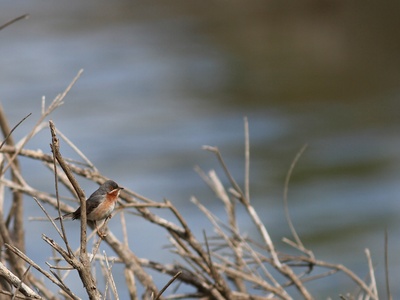
Subalpine Warbler
A small, active warbler of scrubby habitats. The male is grey above and rusty-pink below, with a white “moustache” stripe and red eye-ring. Constantly on the move, flitting through bushes.
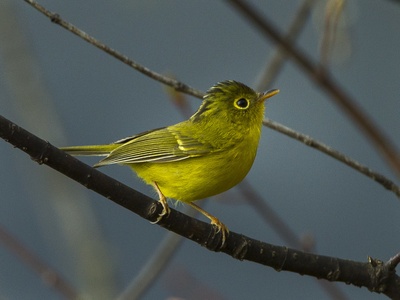
Spectacled Warbler
A small warbler of low, arid coastal scrub. The male is like a miniature Whitethroat but with a grey head, rufous wing panel, and a distinct white eye-ring, giving it a “spectacled” look.
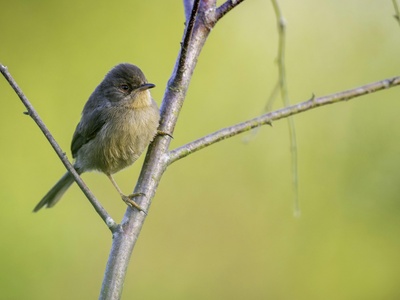
Dartford Warbler
A small, dark, long-tailed warbler of heathland and dense scrub. It is dark grey-brown above and purplish-brown below with a red eye-ring. A skulking bird, it is often hard to see well.
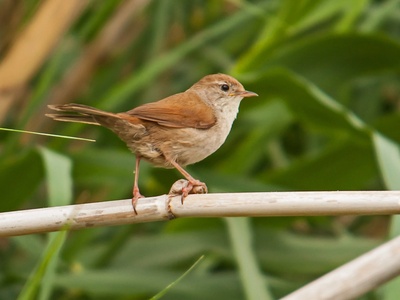
Cetti’s Warbler
A skulking, plain brown warbler found in dense vegetation near water. It is rarely seen, but its presence is given away by its sudden, explosively loud song. It has a rounded tail.
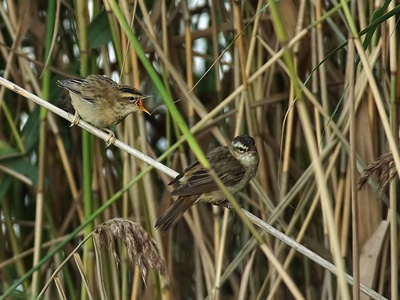
Sedge Warbler
A common migrant warbler, pausing in wetlands on its journey. It is a streaky brown bird with a bold, creamy eyebrow stripe. It delivers a fast, chattering, and rambling song from a reed stem.
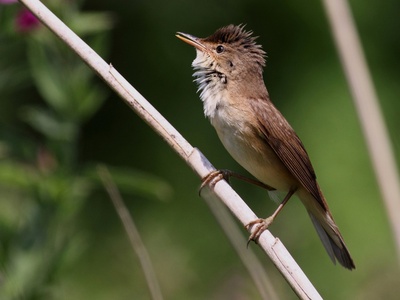
Great Reed Warbler
A very large, noisy warbler found in extensive reedbeds. It is plain brown above and pale below, with a prominent eyebrow. Its song is a series of loud, harsh, grating croaks and whistles.
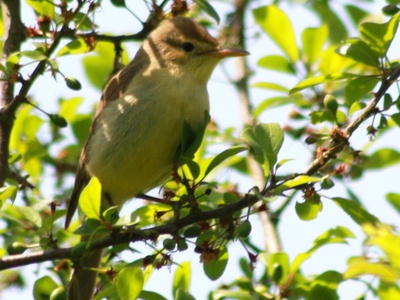
Melodious Warbler
A plain warbler, greenish-brown above and yellow below, with a pale eye-ring and pale legs. It breeds in open woods and thickets, delivering a fast, chattering, and pleasant song.
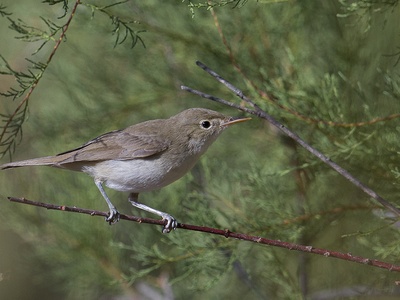
Western Olivaceous Warbler
A plain, pale grey-brown warbler with a long, heavy bill and a flattish forehead. It is a bird of tamarisk thickets, palm groves, and gardens in arid regions, with a harsh, chattering song.
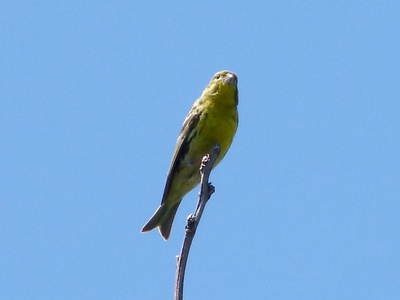
European Serin
A small, short-tailed finch. The male is bright yellow, especially on the head and breast, with a streaky back. Its song is a constant, high-pitched, jangling twitter, often given from a treetop.
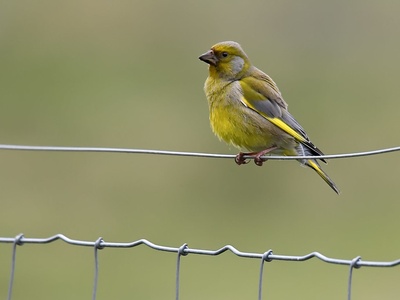
European Greenfinch
A stocky, bull-necked finch with a stout, pale bill. The male is olive-green with conspicuous bright yellow flashes on the wings and tail. A common bird of gardens, parks, and farmland.
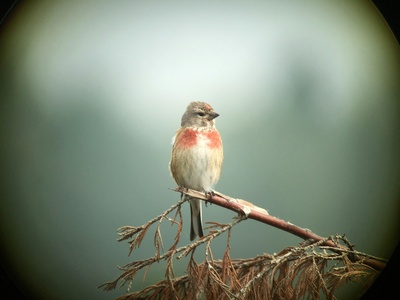
Common Linnet
A slender, sociable finch of open, bushy country. In breeding plumage, the male has a grey head, brown back, and a beautiful crimson patch on his forehead and breast.
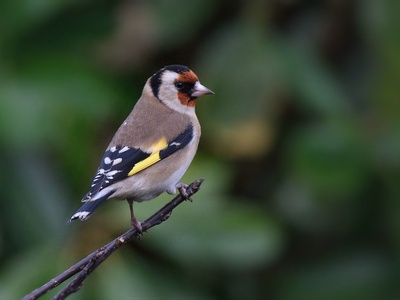
Goldfinch
An unmistakable and colourful finch with a red, white, and black face, and a brilliant yellow bar on its black wings. Often seen in flocks, feeding on thistle heads in open country.
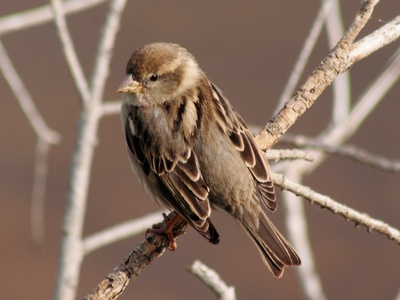
Spanish Sparrow
Similar to the House Sparrow, but the male has a rich chestnut crown, and bold black streaking on its flanks and back. It is highly colonial, building huge communal nests in trees.
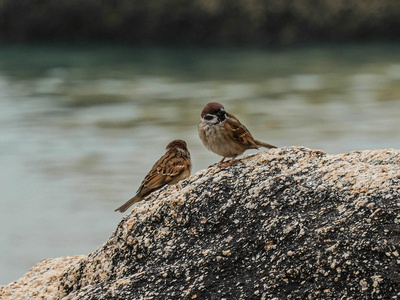
Rock Sparrow
A drab, streaky sparrow of rocky, mountainous country. It has a pale crown stripe and a small, often inconspicuous, yellow spot on its throat. It has a simple, repetitive, nasal call.
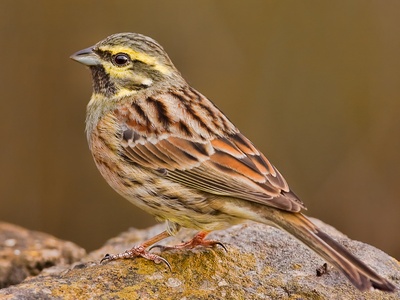
Cirl Bunting
A bunting of farmland with scattered trees and hedges. The male has a striking face pattern with a black crown, throat, and eye-stripe, offset by yellow on his face and underparts.
